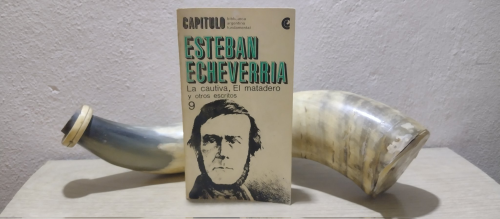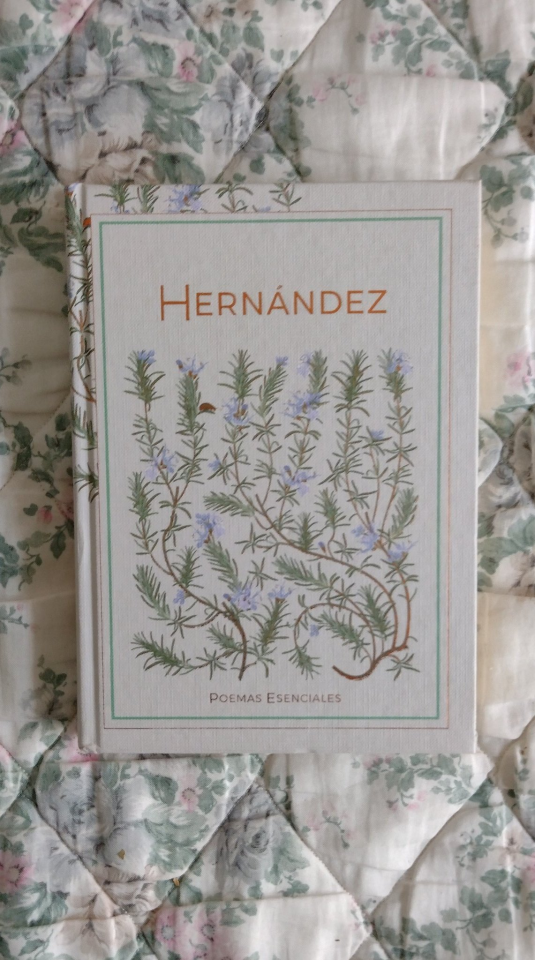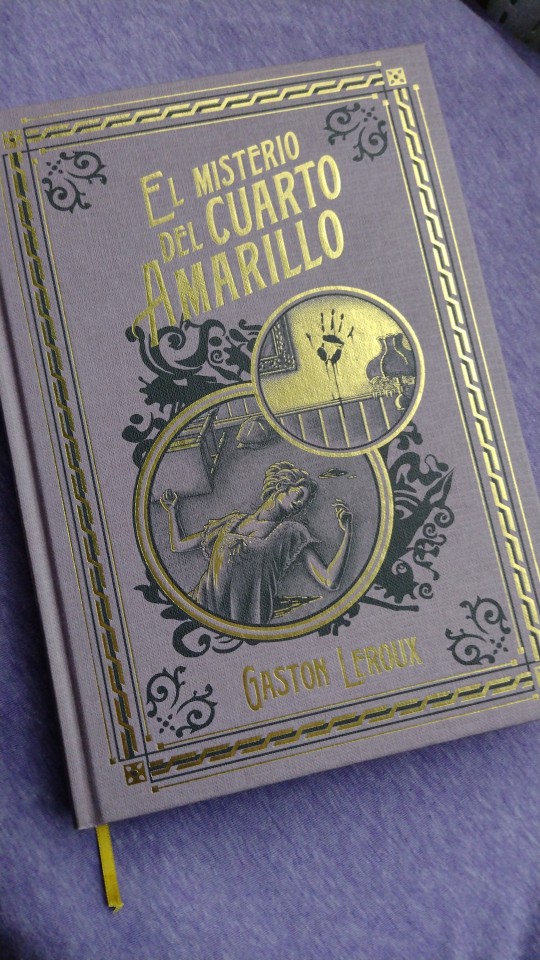
25 / Argentina / Gay nerd / Virgo / INTJ / Single / Slightly NSFW stuff / Book reviews / Me
248 posts
Book Review: La Cautiva, El Matadero Y Otros Escritos, Esteban Echeverra
Book Review: La Cautiva, El Matadero y otros escritos, Esteban Echeverría

My favorite quote:
"Since men have no real value to us in politics, but as agents to realize or generate social ideas, we will frankly confess that we wish we saw all those favored by Fortune dethroned at last; we can't conceive progress at all for our nation, if not by having the best and most capable take the initiative of thought and social action, and by best and most capable we mean those who are expression of the highest of virtues, and of the highest intelligence in the country."
This small book includes three of Evecherría's most renowed works, so I'll make a quick comment about each:
La Cautiva (The Captive)
This poems narrates the final days of a young woman, captured by the "indios", from where she manages to escape with her husband, badly injured from the fight. They profess a deep and passionate love for each other, but it's the woman who will be taking center stage while trying to keep her man from death and the dangers of the argentinean desert. It's a very beautifully written poem, enhancening the small figure of that woman in the hot lands dominated by the "savages", characterizing her as a force of nature, of willing to live despite it all, of profound love.
El Matadero (The Slaughterhouse)
This one is a short story, set in one of the most violent times of our "civil war" history: unitarios against federales. The story begins actually with a severe rain that swamped Buenos Aires, making everyone suddenly very anxious in a religious and political sense. But the worst part was that the flood impeded the arrival of several cows to the city's slaughterhouse. When the streets and roads finally allow the transport of the first lot of cows, chaos invades the zone, as one bull has infiltrated the group and is running rampant through the city. It is finally taken down by a "glorious unitario". Parallel to the felled bull, a federal appears in town, refusing to wear the symbols of the unitarios, for which he's punished to death. The valiant defiance of the federal mirrors the violent fight for survival of the bull, but both are just slaughtered for being out of place. The story itself is quite simple and the analogies it presents are easy to understand, but Echverrria writes with such a joyful and witty style, making fun of both sides and the people from his time that his work becomes almost satyrical of the Buenos Aires of the 19th century. I really liked it
Reflexiones
This was a non-fiction section of the book, regarding the political views of Esteban Echeverria. I won't dwelve much into it because it's mostly related to Argentina at the time, but I will highlight the author's knowledge of the academic and literary enviroment of his time.
My other 2024 readings.
-
 monkeypeemonkeypootoo liked this · 1 year ago
monkeypeemonkeypootoo liked this · 1 year ago -
 niksdiary liked this · 1 year ago
niksdiary liked this · 1 year ago -
 qlipth liked this · 1 year ago
qlipth liked this · 1 year ago -
 agayprince reblogged this · 1 year ago
agayprince reblogged this · 1 year ago -
 agayprince liked this · 1 year ago
agayprince liked this · 1 year ago -
 jakobxx99 liked this · 1 year ago
jakobxx99 liked this · 1 year ago
More Posts from Raiquen
Book Review: Poemas Esenciales, Juan Ramón Jiménez

My favorite poem of the book:
Destino ruin; si tu fueses // Cursed fate; if you were un hombre y se te pudiera // a man and one could buscar, igual que al león // hunt you, like the lion más terrible, por la tierra. // most fearsome, through the Earth
My Ful Review:
The only previous work I've read from Juan Ramón Jimenez is "Platero y Yo", about a kid and his donkey. It's been a while since I read it, but I can clearly trace the same wonder and curiosity of childhoodness in the poems included in this selection.
The author's verses are sweet and short, candid and full to the brim with the same eagerness to discover new things, marveling at the beauty of nature mostly.
That same childhood wonder though is also responsible for the erratic train of thought of the author, jumping from theme to theme with apparently no rhyme or reason, resulting in a aeries of poems with a very thin connection between them.
All in all, I liked his poetry, which seemed to mature in themes alongside the author.
My other 2024 readings.
Book Review: Poemas Esenciales, Miguel Hernández

My favorite poem of the book:
Casida del Sediento Aroma del desierto soy: desierto de sed. Oasis es tu boca donde no he de beber Boca: oasis abierto a todas las arenas del desierto. Húmedo punto en medio de un desierto abrasador, el de tu cuerpo, el tuyo, que nunca es de los dos Cuerpo, pozo cerrado a quien la sed y el sol han calcinado.
My Full Review:
Pending review, I'll revisit because I need to complain about him.
My Other 2024 Readngs.
Book Review: The Mystery of the Yellow Room, Gaston Leroux

My favorite quote of the book:
"... He declared that he admired the cautious doubt with which certain people (me) approached the most simple problems from afar, not daring to say: this is like this, or this isn't like that, so that their intellects arrived to the same results as if nature had forgotten to put some gray matter in their skulls."
My Full Review:
One of the most famous closed-room mysteries out there, "The Mystery of the Yellow Room" is a captivating novel from french author Gaston Leroux that feels fresh despite being more than a century old.
The driving force of the novel and the most powerful magnet of the reader's attentions is our "detective" in the story, Joseph Boutabille, local reporter: a competitive boy, his charm has no rival and his self-confidence results admirable rather than annoying, buying himself the trust of any potential witness of the impossible crime of Mathilde Stangerson.
The crime itself is fascinating, and the author gives all the clues and tools to the reader to solve it by themselves, since the conclussions Boutabille draws are not really out of thin air, even when there are some hidden "mechanisms" in his mind that he later reveals during the trial of the main suspect.
But since the mystery it's actually two-fold, the author takes the same route as Sir Arthur Conan Doyle in "The Valley of Fear": there's an impossible-to-know-or-suspect backstory of some of the characters that complete the puzzle and explains their odd behavior, which cheats the reader from dechypering the rest of the mystery completely by themselves.
Regarding the style, given it's the narration from the point of view of Sainclair, lawyer and friend of the young reporter, it has a careful prose and rich vocabulary, which doesn't prevent the author from highlighting even more the intrepid spirit and resourceful mindset of the young Boitabille, who compensates his more proactive and sometimes premature attitude with a fierce adherence to logic and reason.
A lovely novel and a captivating mystery.
My Other 2024 Readings.

"How long have I stared at you
without looking at you, in the image
exact and unreachable
betraying you in the mirror!
'Kiss me', you say. I kiss you,
and while I kiss you I think
in how cold would they be
your lips in the mirror.
'All my soul for you',
you murmur, but in the chest
I feel a void that only
will be filled by that soul
that you won't give to me.
The soul that demures itself
with a costume of clarities
in your mirror shape."
"¡Cuánto rato the he mirado...!", Pedro Salinas
